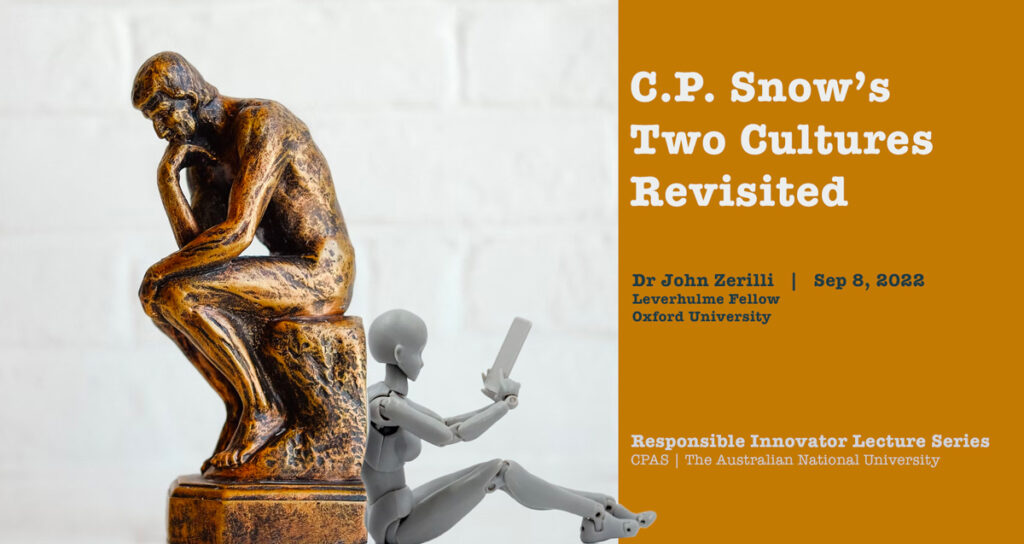C.P. Snow's Two Cultures Revisited
Welcome to Responsible Innovator Lecture Series with Dr John Zerilli around hard and soft sciences.
Cost
$0.00
Content navigation
RegisterDescription

C.P. Snow’s Two Cultures Revisited
The AI revolution provides a neat illustration of C.P. Snow’s idea of “two cultures” and a timely opportunity to reflect on why a large gap between the cultures of the hard and soft sciences persists. I take aim at the attitude among some computer scientists (and many undergraduates, indeed possibly the wider public) that ethics is all fluff. And I’d like to do that by first suggesting why the attitude exists and then diagnosing why it’s wrong. It exists because there’s a definite difference between science and non-science that has to do with the theoretical posits of hard vs. soft sciences. The downbeat attitude to ethics and the soft sciences is mistaken because while there’s a clear difference between the sciences and the humanities, the wrong conclusion is too easy to draw. Ethics isn’t easy, it’s actually hard, and it’s hard in two ways: it’s hard in a technical sense (as the debates over fair algorithms and various incompatibility theorems illustrate); and it’s hard in a nontechnical sense, requiring skills which aren’t evenly distributed in the population. Indeed, the skills required may be about as (un)evenly distributed as mathematical and other STEM skills.
John Zerilli is a philosopher with particular interests in cognitive science, artificial intelligence, and the law. He is currently a Leverhulme Fellow at the University of Oxford, a Research Associate in the Oxford Institute for Ethics in AI, and an Associate Fellow in the Centre for the Future of Intelligence at the University of Cambridge. His two most recent books are The Adaptable Mind (Oxford University Press, 2020) and A Citizen’s Guide to Artificial Intelligence (MIT Press, 2021).
____________
The Responsible Innovator Lecture Series is organized by ANU Responsible Innovation Lab.
The series is designed to initiate new conversation around the responsibility of innovators as they imagine, design, build and deploy new technologies. Distinguished innovators and academics from around the world share lessons from their own projects helping engineers and scientists understand the complexities around new technologies.
To see the list of speakers in 2022 and watch the recording of the previous events, please visit the RI-Lab website at www.InnovateResponsibly.org
Location
Online, zoom link provided after registration
